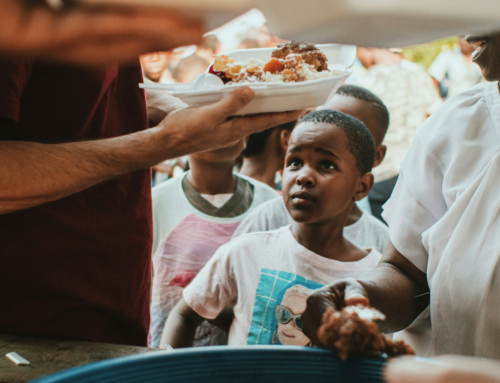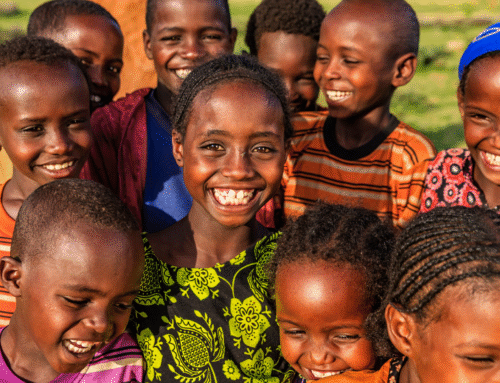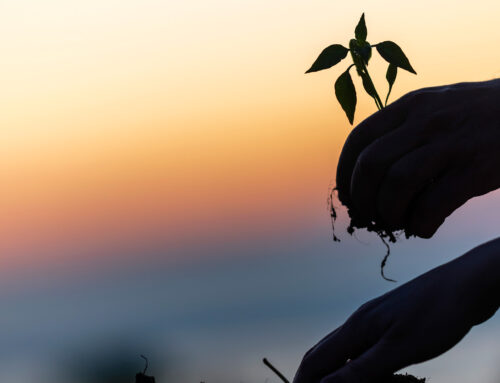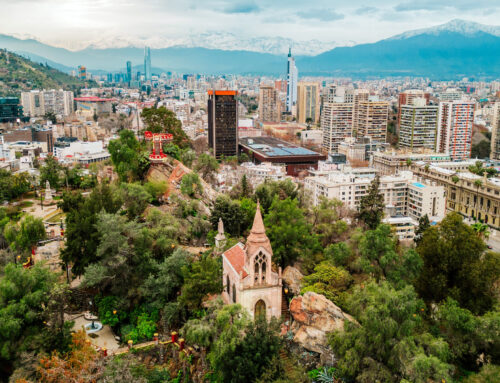Healing That Goes Deeper: Changing Spiritual Perspectives in the Middle East
In the Middle East, illness is often perceived as a form of divine punishment. This belief shapes the way many approach suffering and healing, seeing it as a direct reflection of God’s judgment. For Dr. Waled*, a Haggai leader, this perception became an opportunity to reveal the true, restorative character of God.
Dr. Waled is a laparoscopic and bariatric surgeon whose decades of experience in the medical field have been deeply informed by his Christian faith. A specialist in both physical and spiritual healing, he has dedicated his life to challenging misconceptions about illness while offering hope and holistic care to his patients.
“In many parts of the Middle East, illness is viewed as a sign of divine punishment,” Dr. Waled shared. “When someone falls ill, the automatic response is often to wonder what they did wrong, to fear that God is punishing them for their sins.”
From an early age, Dr. Waled understood the connection between health and faith. His calling to medicine grew from witnessing how fear and shame could hold people back from seeking care. During his medical training, he resolved to make his practice a place where patients could not only heal physically but also experience spiritual restoration. “I knew that my work could be a place to offer hope, not just healing,” he said. “Healing wasn’t simply about treating the physical body; it was about offering a vision of God’s redemptive love.”
Dr. Waled’s approach to medicine became holistic, addressing the physical, emotional, and spiritual needs of his patients. He used his platform to counter the fear and shame tied to the belief that illness was a reflection of sin, instead teaching that healing is a gift from God.
“Many of my patients believed their illness was divine punishment, and that made it harder for them to accept help,” he explained. “But I’ve come to know that illness isn’t a punishment; it’s an opportunity for God to show His grace.”
His journey was further enriched by his participation in the Haggai Leader Experience. Through this program, Dr. Waled deepened his understanding of how faith and healing intersect. “Through Haggai, I realized my calling as a doctor was not separate from my faith,” he shared. “In both my work with patients and with Haggai, I’ve come to see that healing is a holistic process — physically, emotionally, and spiritually.”
Now, Dr. Waled continues his work both as a physician and as a Haggai leader, embodying the integration of faith and healing, sharing, “Every day, I’m reminded that God’s healing power isn’t just physical — it’s spiritual.”
*name changed for security purposes
Written by Lauryn Russell
Healing That Goes Deeper: Changing Spiritual Perspectives in the Middle East
In the Middle East, illness is often perceived as a form of divine punishment. This belief shapes the way many approach suffering and healing, seeing it as a direct reflection of God’s judgment. For Dr. Waled*, a Haggai leader, this perception became an opportunity to reveal the true, restorative character of God.
Dr. Waled is a laparoscopic and bariatric surgeon whose decades of experience in the medical field have been deeply informed by his Christian faith. A specialist in both physical and spiritual healing, he has dedicated his life to challenging misconceptions about illness while offering hope and holistic care to his patients.
“In many parts of the Middle East, illness is viewed as a sign of divine punishment,” Dr. Waled shared. “When someone falls ill, the automatic response is often to wonder what they did wrong, to fear that God is punishing them for their sins.”
From an early age, Dr. Waled understood the connection between health and faith. His calling to medicine grew from witnessing how fear and shame could hold people back from seeking care. During his medical training, he resolved to make his practice a place where patients could not only heal physically but also experience spiritual restoration. “I knew that my work could be a place to offer hope, not just healing,” he said. “Healing wasn’t simply about treating the physical body; it was about offering a vision of God’s redemptive love.”
Dr. Waled’s approach to medicine became holistic, addressing the physical, emotional, and spiritual needs of his patients. He used his platform to counter the fear and shame tied to the belief that illness was a reflection of sin, instead teaching that healing is a gift from God.
“Many of my patients believed their illness was divine punishment, and that made it harder for them to accept help,” he explained. “But I’ve come to know that illness isn’t a punishment; it’s an opportunity for God to show His grace.”
His journey was further enriched by his participation in the Haggai Leader Experience. Through this program, Dr. Waled deepened his understanding of how faith and healing intersect. “Through Haggai, I realized my calling as a doctor was not separate from my faith,” he shared. “In both my work with patients and with Haggai, I’ve come to see that healing is a holistic process — physically, emotionally, and spiritually.”
Now, Dr. Waled continues his work both as a physician and as a Haggai leader, embodying the integration of faith and healing, sharing, “Every day, I’m reminded that God’s healing power isn’t just physical — it’s spiritual.”
*name changed for security purposes
Written by Lauryn Russell
Healing That Goes Deeper: Changing Spiritual Perspectives in the Middle East
In the Middle East, illness is often perceived as a form of divine punishment. This belief shapes the way many approach suffering and healing, seeing it as a direct reflection of God’s judgment. For Dr. Waled*, a Haggai leader, this perception became an opportunity to reveal the true, restorative character of God.
Dr. Waled is a laparoscopic and bariatric surgeon whose decades of experience in the medical field have been deeply informed by his Christian faith. A specialist in both physical and spiritual healing, he has dedicated his life to challenging misconceptions about illness while offering hope and holistic care to his patients.
“In many parts of the Middle East, illness is viewed as a sign of divine punishment,” Dr. Waled shared. “When someone falls ill, the automatic response is often to wonder what they did wrong, to fear that God is punishing them for their sins.”
From an early age, Dr. Waled understood the connection between health and faith. His calling to medicine grew from witnessing how fear and shame could hold people back from seeking care. During his medical training, he resolved to make his practice a place where patients could not only heal physically but also experience spiritual restoration. “I knew that my work could be a place to offer hope, not just healing,” he said. “Healing wasn’t simply about treating the physical body; it was about offering a vision of God’s redemptive love.”
Dr. Waled’s approach to medicine became holistic, addressing the physical, emotional, and spiritual needs of his patients. He used his platform to counter the fear and shame tied to the belief that illness was a reflection of sin, instead teaching that healing is a gift from God.
“Many of my patients believed their illness was divine punishment, and that made it harder for them to accept help,” he explained. “But I’ve come to know that illness isn’t a punishment; it’s an opportunity for God to show His grace.”
His journey was further enriched by his participation in the Haggai Leader Experience. Through this program, Dr. Waled deepened his understanding of how faith and healing intersect. “Through Haggai, I realized my calling as a doctor was not separate from my faith,” he shared. “In both my work with patients and with Haggai, I’ve come to see that healing is a holistic process — physically, emotionally, and spiritually.”
Now, Dr. Waled continues his work both as a physician and as a Haggai leader, embodying the integration of faith and healing, sharing, “Every day, I’m reminded that God’s healing power isn’t just physical — it’s spiritual.”
*name changed for security purposes
Written by Lauryn Russell















